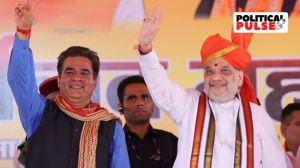- India
- International
Indian definition of secularism is incomplete, says Romila Thapar
Thapar made the observations while delivering the Dr Asghar Ali Memorial Lecture on ‘Indian society and the secular’ at Jamia Millia Islamia.
The Indian definition of secularism was “limited and incomplete” as it restricted itself to mere co-existence of religions which did not prevent some religions from being “marginalised”, historian Romila Thapar said on Wednesday.
Thapar made the observations while delivering the Dr Asghar Ali Memorial Lecture on ‘Indian society and the secular’ at Jamia Millia Islamia.
“Secularism is the curtailment of religious control over social institutions, not the absence of religion from society. It is when our primary identity is of equal citizens of the nation, not as belonging to a particular religion or caste. But the Indian definition of secularism is limited to the coexistence of many religions which is incomplete because some religions can still be marginalised as they are,” said Thapar.
[related-post]
“There is an attempt now to not give secularism much attention. There are demands that the word be deleted from the Constitution so that the demand for its inclusion can be forgotten. Some argue that it’s a western concept. But both nationhood and democracy are post-independent concepts too. Moreover, internalising the neo-liberal market economy is also western,” she said.
Thapar argued that the concept of secularism went beyond politics and none of the mainstream political parties adhered to it. “There is one political party which supports the term in theory but has trouble implementing it in practice whereas there is another, the foundational ideology of which is anti-secular,” she said.

She talked about how neither the religious nationalists and the anti-colonial nationalists had questioned the colonial historiography of India.
“Colonial history had to paint this picture to legitimise their rule and show that a third party was needed to control the situation. This image was imprinted, especially in the history of Medieval India, of which it is said that ‘we were slaves’. While the religious nationalists readily accepted this, even the anti-colonial nationalists did not question the monolithic nature of both religions,” argued Thapar.
Apr 26: Latest News
- 01
- 02
- 03
- 04
- 05







































